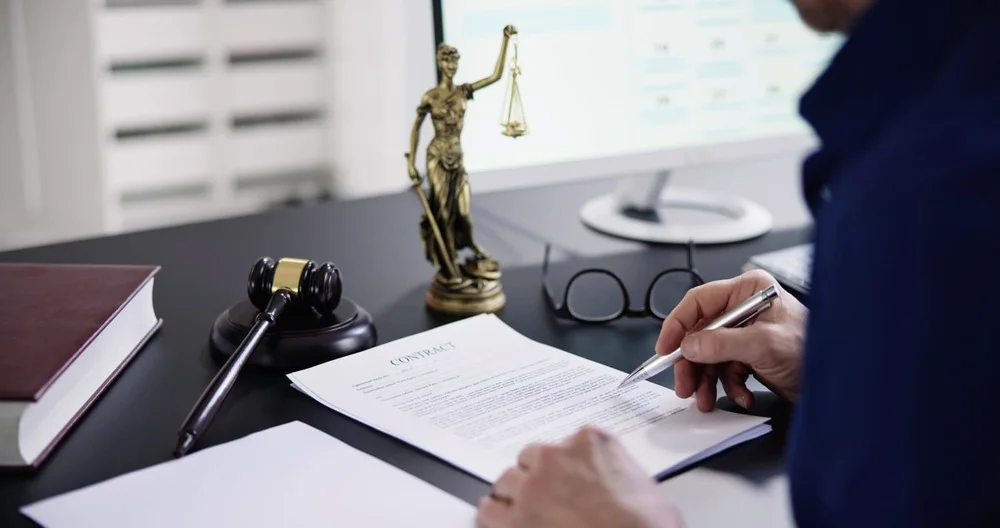Why Your Business Needs a Blockchain Law Firm: Top 5 Reasons
- Insights & News
- April 2, 2025
The digital landscape is evolving at an exceptional rate, with transformative technologies reshaping industries in ways we couldn’t have imagined a decade ago. Among these innovations, decentralized systems and digital assets are gaining widespread adoption, offering businesses enhanced security, transparency, and operational efficiency.
However, as organizations look to integrate these tools into their processes, they also face a complex set of legal challenges that are often difficult to navigate.
For business leaders, the ability to harness the full potential of these technologies while ensuring compliance with an ever-evolving set of regulations has become a critical concern. Whether dealing with digital currencies, automated contracts, or the protection of intellectual property, the legal considerations surrounding these innovations are just as important as the technology itself.
The decentralized nature of many of these technologies adds another layer of complexity. Different jurisdictions have varied laws, and keeping up with them can be a daunting task. As these systems become more integrated into business operations, the risk of regulatory missteps grows, making it essential to have a Blockchain Law Firm’s specialized guidance to protect both legal and financial interests. In this article, we’ll explore five key reasons why working with a Blockchain Law Firm that specializes in these technologies is essential.
From managing regulatory complexities to protecting innovations and reducing transaction risks, having the right legal expertise is crucial for success in today’s fast-paced and ever-changing digital environment.
Reason 1: Keeping Up with Changing Regulations
Adapting to a Complex Legal Environment
The legal landscape for new technologies is constantly shifting. Countries around the world are working to define how decentralized technologies, digital currencies, and other innovations should be regulated. These regulations often vary greatly from one jurisdiction to another, making it difficult for businesses to stay compliant across borders.
For instance, in the U.S., agencies like the SEC monitor financial markets, while Europe and Asia have different regulatory standards for digital assets. As rules continue to evolve, businesses must stay agile to avoid legal pitfalls.
Guidance from Legal Experts
Legal professionals with expertise in these technologies can provide critical guidance. They stay up-to-date on changing regulations and help businesses navigate the complex maze of compliance requirements, including anti-money laundering (AML), data protection laws, and financial regulations. With the help of a specialized team, businesses can focus on innovation, knowing that their operations are legally sound.
Reason 2: Protecting Digital Assets and Intellectual Property
The Challenge of Securing Digital Innovations
The innovations that come with decentralized technologies often involve valuable intellectual property (IP). These technologies, such as smart contracts or digital tokens, can be difficult to protect due to their global nature and the decentralized systems on which they operate.
Securing patents, trademarks, and copyrights in this space can be more complex than traditional methods of IP protection. Without the right legal support, businesses risk losing control over their digital assets or facing disputes over ownership.
How Legal Experts Help Protect Innovations
A legal team with experience in digital innovations can assist businesses in protecting their intellectual property. From securing patents for new technologies to drafting contracts that safeguard digital assets, experts help businesses ensure that their IP remains secure. This protection allows companies to innovate freely, knowing their creations are legally safeguarded.
Reason 3: Managing Digital Transaction Risks
The Risks of Automated Agreements
One of the most exciting features of decentralized technologies is the ability to automate agreements through smart contracts. These self-executing contracts can streamline processes and reduce the need for intermediaries. However, if poorly written, smart contracts can introduce significant legal risks. An unclear or incomplete contract can lead to disputes, financial losses, or even legal challenges.
Moreover, the enforceability of such contracts is often unclear in certain legal systems, which can create uncertainty for businesses relying on automated agreements.
Legal Support for Smart Contracts
Specialized legal professionals can mitigate these risks by reviewing and drafting clear, enforceable smart contracts. These experts ensure that contracts are not only compliant with relevant laws but also cover all potential scenarios to prevent future conflicts. With this legal oversight, businesses can confidently use automation to streamline their operations without exposing themselves to unnecessary risks.
Reason 4: Navigating International Legal Challenges
Operating in a Global Market
With decentralized technologies operating across borders, businesses must comply with regulations in multiple jurisdictions. Whether managing cross-border payments, handling data privacy, or ensuring the legal status of digital assets, international compliance can be daunting. Different countries have varying standards, which can complicate global operations.
Businesses need legal guidance to ensure they stay compliant with each country’s specific laws, especially when dealing with sensitive data or engaging in international transactions.
Global Expertise for Digital Operations
A legal team with experience in international regulations can help businesses operate smoothly across borders. These experts can advise on compliance with laws such as the EU’s General Data Protection Regulation (GDPR), financial regulations in Asia, or cryptocurrency laws in North America. With the right legal support, businesses can expand globally without fear of violating local regulations.
Reason 5: Strategic Legal Counsel for Digital Business Models
Shaping Business Models for the Digital Age
Adopting new digital technologies is not just about implementing tools—it’s about reshaping business strategies. Whether launching a new service or exploring digital asset management, companies need to carefully plan their approach. A strong legal foundation is essential for ensuring that these new ventures are legally sound and strategically aligned with business goals.
Legal experts who understand the unique challenges of emerging technologies can guide businesses in structuring their operations to maximize efficiency and minimize risk.
Long-Term Success through Strategic Legal Guidance
A specialized legal team offers more than just compliance advice. They provide strategic insight into how businesses can build sustainable digital models. Whether advising on entity formation, managing risk, or guiding tax planning for digital assets, these experts ensure that businesses are legally prepared to succeed in a rapidly evolving digital landscape.

Conclusion
- As digital technologies continue to reshape industries, the need for specialized legal expertise becomes more crucial. Businesses that adopt decentralized systems and digital innovations must ensure they are compliant with evolving regulations, secure their intellectual property, and manage the risks inherent in new technologies.
- Partnering with a legal team experienced in these areas allows businesses to innovate with confidence, knowing they are protected by expert guidance. Don’t leave your business’s future to chance—consult a legal team today to ensure that your operations are ready for the challenges and opportunities of the digital age.












